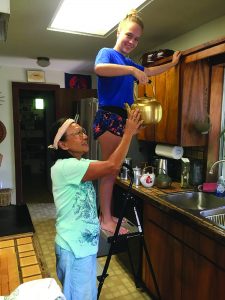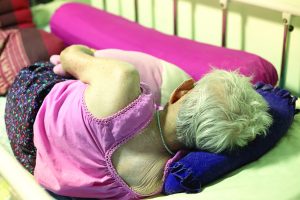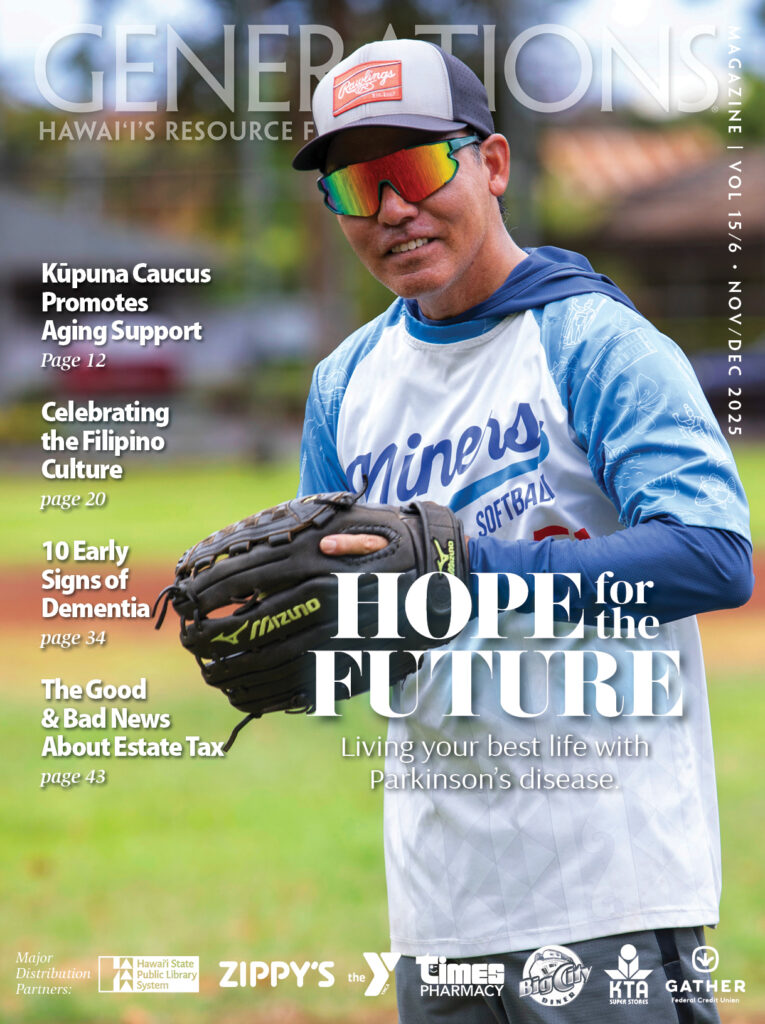Ironically, while it seems that our response to the COVID-19 pandemic is continuing to emphasize mandated self-quarantine and social distancing, it may also give many of us a greater awareness of what it is like to live in chronic isolation and what we can do to make our island population healthier when we come out of it.
At no time in human history have so many people lived alone. Recent studies show that there are significant negative health effects from social isolation and loneliness. Data also shows that there are positive health outcomes for those who share their homes and major economic benefits to home share homeowners and home share seekers (renters) alike.
 Vivek Murthy, the surgeon general of the United States under Barack Obama, has been sounding the alarm for several years prior to the COVID-19 virus that the most prevalent health issue in the country is isolation. Studies of 3.4 million participants cited in the December AARP The Magazine concluded that people who live alone face an early death. An array of studies have also found that “loneliness is a killer.” It leaves us more likely to die from heart disease and makes us more vulnerable to Alzheimer’s disease, high blood pressure and suicide. It’s more dangerous to our health than obesity. It’s the equivalent of smoking 15 cigarettes a day. The impact on people living in isolation adds almost $7 billion a year to the cost of Medicare.
Vivek Murthy, the surgeon general of the United States under Barack Obama, has been sounding the alarm for several years prior to the COVID-19 virus that the most prevalent health issue in the country is isolation. Studies of 3.4 million participants cited in the December AARP The Magazine concluded that people who live alone face an early death. An array of studies have also found that “loneliness is a killer.” It leaves us more likely to die from heart disease and makes us more vulnerable to Alzheimer’s disease, high blood pressure and suicide. It’s more dangerous to our health than obesity. It’s the equivalent of smoking 15 cigarettes a day. The impact on people living in isolation adds almost $7 billion a year to the cost of Medicare.
In America, people are living longer and healthier lives, resulting in a growing older population in need of new models of housing arrangements. In Hawai‘i, it is common to find an elderly person who lives alone in their own home trying to maintain their independence, while at the same time, adjusting to abilities that are declining. No one wants to live in an institution. They want to live out their lives comfortably in their own homes. In Honolulu, there are approximately 67,000 seniors aged 60 years or older living alone. Over time, they tend to become more isolated, which results in a growing, serious negative impact on their mental and physical health.
 In response to this epidemic of isolation, a strategy called “home sharing” has been implemented in many U.S. cities for over 40 years. Recently, the nonprofit Hawaii Intergenerational Network (HIN), with funding from the HMSA, Kaiser and Atherton Family foundations, began a project called “Homesharing Hawaii” to offer a similar program in the state that will help seniors safely age in place and secure very affordable housing for low- and moderate-income renters. It is also a cost effective program because it doesn’t require building new housing or providing ongoing rental subsidies.
In response to this epidemic of isolation, a strategy called “home sharing” has been implemented in many U.S. cities for over 40 years. Recently, the nonprofit Hawaii Intergenerational Network (HIN), with funding from the HMSA, Kaiser and Atherton Family foundations, began a project called “Homesharing Hawaii” to offer a similar program in the state that will help seniors safely age in place and secure very affordable housing for low- and moderate-income renters. It is also a cost effective program because it doesn’t require building new housing or providing ongoing rental subsidies.
Home sharing is a simple idea — two or more people share a home to their mutual benefit. Basically, home sharing is about two pools of people: those with an extra bedroom in their home and those needing an affordable place to live. Homesharing Hawaii brings both groups together through a proven matching process.
The home can be an apartment, condominium or a traditional, single-family house. A homeowner offers a private bedroom, access to a bathroom and shared common area in exchange for rent, help around the house or both. There is usually an agreement outlining the expectations of both parties.
Homesharing Hawaii staff generally provide support to help match a homeowner and renter. They conduct background checks, screening and interviews to help ensure the safety of both parties. Each home-sharing arrangement is tailored to the unique needs and interests of the people involved, but it is up to the participants to decide who they want to live with.
Matches can include a wide variety of combinations. Many matches are intergenerational, such as college students and seniors living together A perfect example is an intergenerational match between an older person who owned a car she couldn’t drive and a college student who could drive but didn’t have a car. As a result, the student drove the senior to appointments and grocery stores, and also had use of the car on his own. The home-sharing relationship lasted until the student graduated from Chaminade University.
 Matches may also be of the “Golden Girls” variety,in which two or more older persons live their lives together. The Homesharing Hawaii project is benefiting from guidance and support from the National Shared Housing Resource Center (NSHRC), and two home-sharing programs with over 30 years of experience in Vermont and Oregon. Using collective experience gathered from the many mainland projects, the NSHRC developed a resource guide for establishing new home-sharing projects.
Matches may also be of the “Golden Girls” variety,in which two or more older persons live their lives together. The Homesharing Hawaii project is benefiting from guidance and support from the National Shared Housing Resource Center (NSHRC), and two home-sharing programs with over 30 years of experience in Vermont and Oregon. Using collective experience gathered from the many mainland projects, the NSHRC developed a resource guide for establishing new home-sharing projects.
That guide has provided Homesharing Hawaii with comprehensive, detailed information that is specific to starting the state’s own home-sharing project. HIN didn’t need to invent anything. The guide includes setting goals, marketing, building trust, outreach and addressing difficult and important liability and compliance issues.
The guide also cautions that making matches is difficult. Although home-sharing match programs are deceptively simple in concept, they are incredibly difficult to accomplish. Not everyone is a good home-sharing candidate; it requires compatibility and flexibility.
The cumulative experiences of home-sharing projects has shown that most senior homeowners living alone are reluctant to get a housemate because they are afraid of being harmed physically or of being the victim of theft.
To help ameliorate that fear, Homesharing Hawaii has developed an enrollment process that includes interviews, acquiring multiple references, conducting extensive background checks on both parties, as well a trial period of living together. HIN’s thorough matching process is designed to support participation and address any concerns.
To be successful, this project needs a large pool of applicants. For that reason, Homesharing Hawaii is continuously recruiting new candidates through a strong outreach program. Most referrals for homeowners will come from family members and friends who are concerned about the well-being of their kūpuna who lives alone.
Participating in this project can increase health and wellness for the homeowner. It can also provide additional income to help fund home maintenance and reduce financial stress. For the home seeker, there is the financial benefit of having an affordable place to live.
Homesharing Hawaii is currently looking for potential homeowners and home seekers. It is also requesting volunteers to assist with outreach.
During this unprecedented pandemic period, HIN Homesharing Hawaii will be adjusting its policies, protocols and operations.
However, interested persons are still welcome to email or call the Homesharing Hawaii staff just to talk about options for the future.
HOMESHARING HAWAII
A project of Hawaii Intergenerational Network
1300 Kailua Road, Kailua, HI 96734
808-308-5291 | homesharinghawaii@gmail.com
www.homesharinghawaii.org
HIN is a nonprofit organization founded in 1996.


Leave a Reply